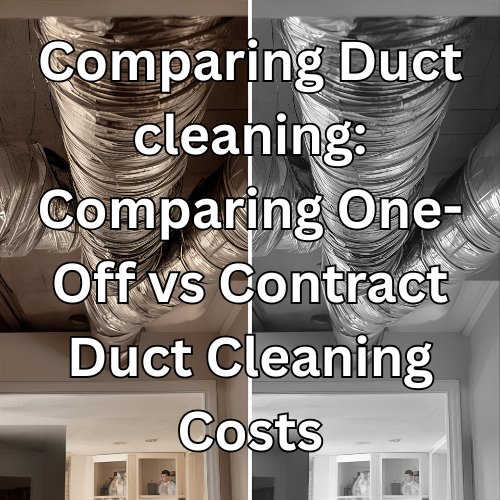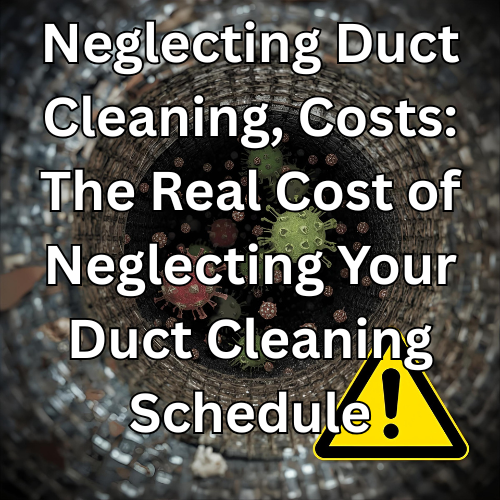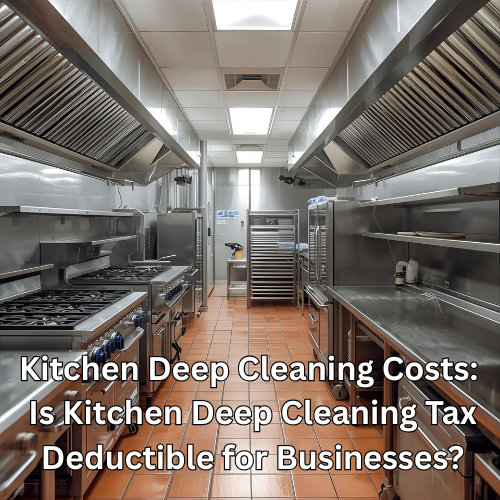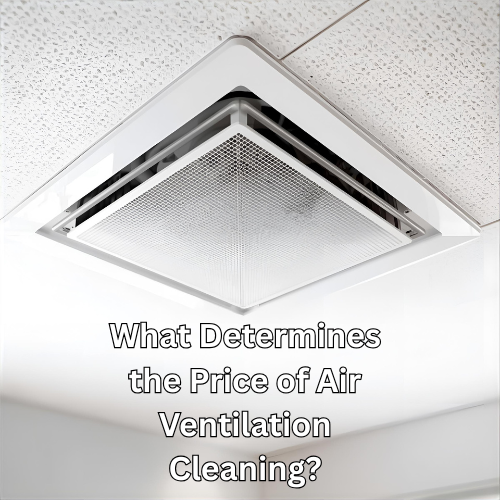If you’ve started comparing duct cleaning quotes lately, you’ve probably noticed two main options:
👉 One-off duct cleaning — a single deep clean, usually paid per visit.
👉 Contract duct cleaning — a planned maintenance agreement with regular visits throughout the year.
And the question that comes up time and again is:
“Which one actually works out cheaper — one-off or contract duct cleaning?”
That’s exactly what we’re going to answer in this guide.
We’ll look at how the costs compare, what’s included in each option, and — most importantly — which choice makes the most sense for your business.
By the end, you’ll know exactly which route delivers better value, compliance, and peace of mind.

The Quick Answer
If your ventilation system is lightly used or recently installed, a one-off clean might be fine.
But if your kitchen, factory, or premises runs daily with heavy extraction use, a contract cleaning plan almost always saves you money — and stress — over time.
Still, let’s unpack the numbers and see why.
What You Pay for a One-Off Duct Clean
A one-off duct cleaning is usually charged as a standalone job.
In the UK, prices for a full NAAD21-standard clean typically range between:
| System Size | One-Off Clean (Typical Cost) |
|---|---|
| Small café or light use system | £450 – £700 |
| Medium restaurant or office kitchen | £750 – £1,200 |
| Large commercial site or factory | £1,500 – £2,500+ |
That cost covers:
- Inspection and access setup
- Canopy, fan, and duct cleaning
- Safe grease and debris removal
- Certification to NAAD21 standards
- Full verification report with photos
It’s a one-time cost — and once done, you’re compliant until your next required clean.
📞 Get a Free Quote Comparing Duct cleaning options
What You Pay for Contract Duct Cleaning
With contract cleaning, you pay a set amount per year for scheduled visits — usually every 3, 6, or 12 months, depending on system use.
Most businesses find it works out 15–25% cheaper annually than booking one-off cleans, because:
- Regular cleaning prevents heavy build-up (less labour time per visit)
- You often get discounted call-out or emergency rates
- Reports and compliance documentation are managed automatically
Here’s an example:
| Cleaning Frequency | Estimated Annual Cost | Saving vs One-Off |
|---|---|---|
| Every 12 months | £600 | £0 (same) |
| Every 6 months | £1,000 | ~20% saving |
| Every 3 months | £1,700 | ~25% saving |
Contract customers also get priority scheduling — so you’re never scrambling for a last-minute appointment before an inspection or insurance renewal.
📞 Get a Free Quote Comparing Duct cleaning options
Comparing One-Off vs Contract Duct Cleaning
Here’s a side-by-side comparison to make things clear:
| Feature | One-Off Clean | Contract Clean |
|---|---|---|
| Upfront Cost | Higher per visit | Spread across the year |
| Long-Term Cost | More expensive over time | Lower with regular maintenance |
| Compliance | Must remember to rebook | Automatically scheduled |
| Risk of Build-Up | High (if neglected) | Low (routine cleaning) |
| Emergency Callouts | Charged at full rate | Usually discounted or included |
| Best For | Small/light use kitchens | Busy kitchens or multiple sites |
So if your system runs daily — or if you manage multiple kitchens, hotels, or facilities — a contract plan is almost always the smarter choice.
If you’re comparing duct cleaning, don’t just look at the price on paper.
Look at the cost of risk, downtime, and missed compliance.
📞 Get a Free Quote Comparing Duct cleaning options
Why Regular Cleaning Matters (Beyond Cost)
Here’s what regular maintenance actually prevents:
- Fire risk: Grease build-up in extract ducts is one of the UK’s leading causes of kitchen fires.
- Insurance issues: Without valid NAAD21 certification, claims can be rejected.
- Energy inefficiency: Dirty ducts make fans work harder, wasting energy.
- Poor air quality: Staff and customers feel the difference — literally.
Contract cleaning doesn’t just save you money.
It protects your people, your property, and your business reputation.
📞 Get a Free Quote Comparing Duct cleaning options
The Hidden Cost of Skipping Regular Cleaning
Many business owners start with a one-off clean thinking it’s cheaper — but here’s what happens:
After 12 months, the ductwork has built up again.
The next clean takes longer, requires more access, and costs more.
That “saving” disappears quickly — and if you miss your renewal, you risk non-compliance.
We’ve seen venues fined thousands for failing to keep up with NAAD21 cleaning schedules — or worse, facing insurance refusals after a fire.
When you compare duct cleaning properly, contract cleaning isn’t an expense — it’s protection.
📞 Get a Free Quote Comparing Duct cleaning options
How to Choose the Right Option
If you’re unsure which approach fits your business best, ask yourself:
- How often is your kitchen or extraction system in use?
- Light use (under 6 hours/day) → One-off clean may be fine.
- Heavy use (10–16 hours/day) → Contract cleaning recommended.
- Do you manage more than one site?
- Contract cleaning keeps everything consistent and compliant.
- Do you need proof for insurers or audits?
- Contracts make sure your NAAD21 documentation is always current.
- Are you reactive or proactive?
- One-offs fix a problem. Contracts prevent one.
📞 Get a Free Quote Comparing Duct cleaning options
Final Thoughts — It’s About Confidence, Not Just Cost
When comparing duct cleaning options, the right question isn’t “Which is cheaper?”
It’s “Which gives me confidence year-round?”
A one-off clean can do the job — but a contract plan keeps your system efficient, compliant, and worry-free.
No last-minute calls. No surprise costs.
Just clean ducts, valid certificates, and peace of mind.
📞 Get a Free Quote Comparing Duct cleaning options
and find out how much you could save with a contract cleaning plan that fits your business.
🧾 Summary: Comparing Duct Cleaning Options
- One-off cleaning is great for light, occasional use.
- Contract cleaning saves 15–25% long-term.
- NAAD21 certification keeps you legally compliant.
- Regular visits reduce fire risk and energy costs.
- Smart businesses choose proactive maintenance over reactive fixes.





